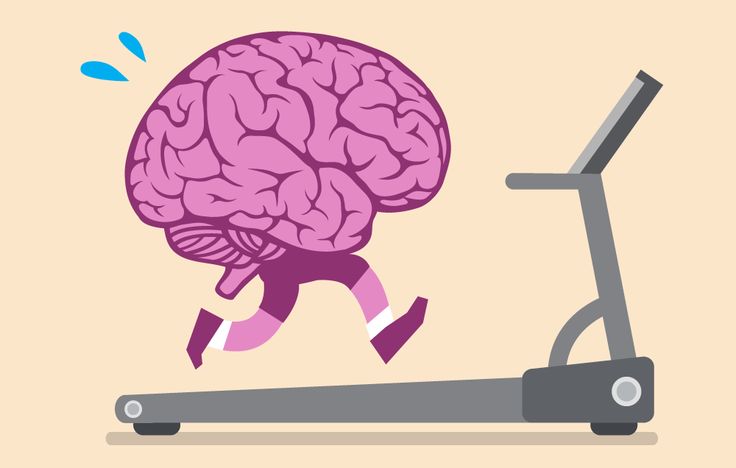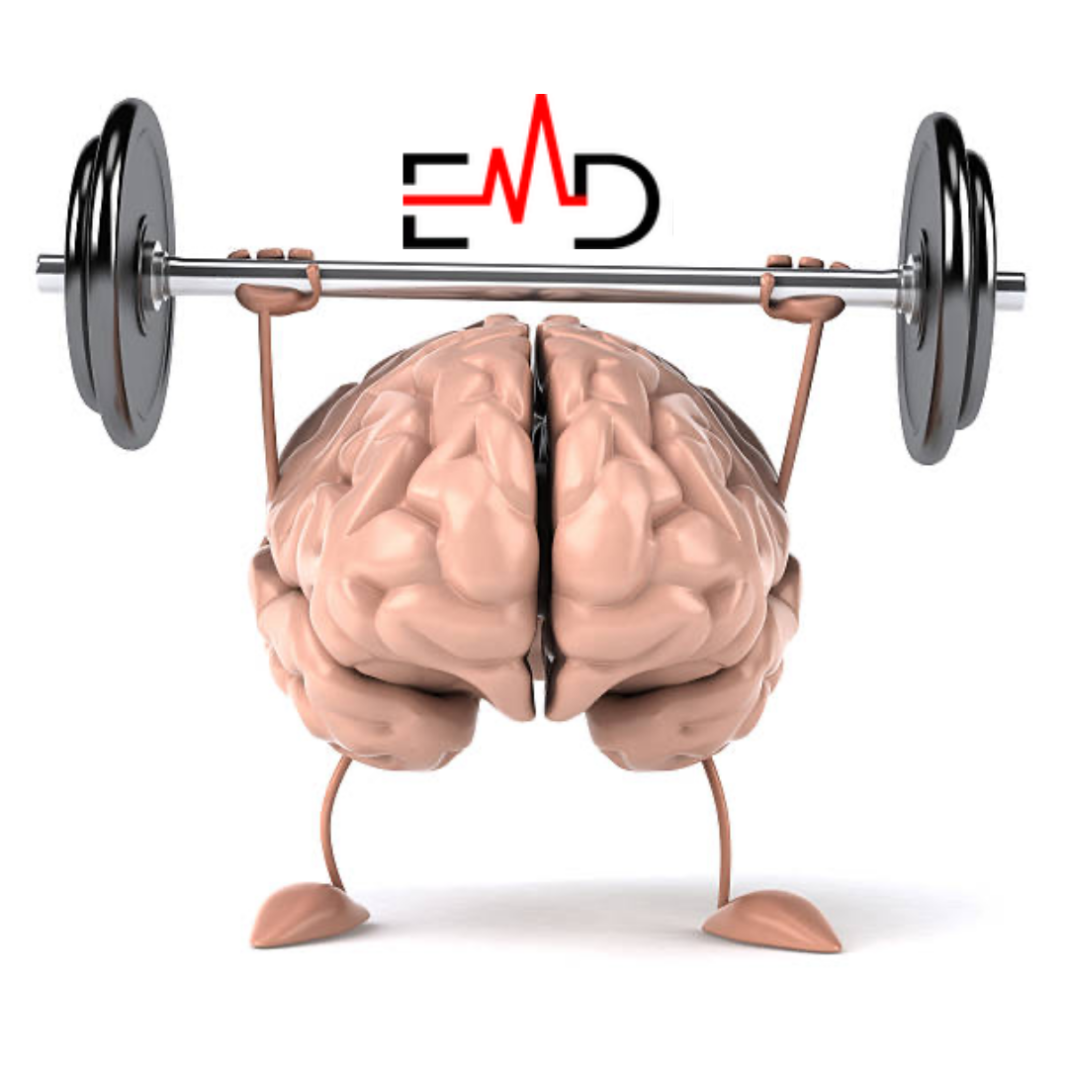Exercise Daily – Have you ever wondered how exercise can do wonders not only for your physical health but also for your brainpower? It turns out that staying fit and active can profoundly impact your cognitive abilities and overall brain health. This article will explore the fascinating science behind the connection between fitness and brainpower. We’ll delve into the cognitive benefits of exercise, its positive effects on mental health, and how it can help combat brain ageing. Get ready to discover the best exercises to boost your brainpower and learn practical tips for incorporating fitness into your daily routine. Let’s dive in!
The Science Behind It
To understand how fitness enhances brainpower, we need to examine what happens in our brains when we exercise. When you engage in physical activity, several remarkable processes occur, setting the stage for improved cognitive function.
1. Increased Blood Flow and Oxygenation
One of the immediate effects of exercise is the increased blood flow and oxygenation in the brain. As your heart rate rises, blood vessels dilate to deliver more oxygen and nutrients to brain cells. This heightened blood flow nourishes the brain, allowing it to function optimally.
2. Release of Neurotransmitters
Exercise triggers the release of various neurotransmitters, commonly known as “feel-good” chemicals. These neurotransmitters, including endorphins, serotonin, and dopamine, play a crucial role in regulating mood, reducing stress, and promoting well-being. This neurochemical cocktail contributes to enhanced brainpower and mental clarity.
3. Promotes Neuroplasticity
Neuroplasticity refers to the brain’s ability to reorganize and form new connections between neurons. Exercise stimulates the production of growth factors that support Neuroplasticity, allowing the brain to adapt, learn, and remember information more effectively. In other words, fitness helps to keep your brain agile and flexible.

Cognitive Benefits of Fitness
Now that we understand the science behind it let’s explore the cognitive benefits that fitness can bring to your life.
1. Improved Memory and Learning
Regular exercise has been linked to improved memory and enhanced learning abilities. Physical activity stimulates the hippocampus, a brain region crucial for memory formation. Studies have shown that individuals who engage in aerobic exercises, such as running or swimming, demonstrate better memory retention and cognitive performance.
2. Enhanced Focus and Attention
If you often find it challenging to focus or concentrate, incorporating fitness into your routine can work wonders. Exercise increases the production of neurotransmitters that improve attention and focus, allowing you to be more productive and engaged in tasks that require mental effort.
3. Reduced Stress and Anxiety
In today’s fast-paced world, stress and anxiety have become all too common. However, exercise can provide a natural remedy. When you engage in physical activity, your body releases endorphins, natural stress relievers. Regular exercise can reduce anxiety symptoms, boost your mood, and promote a sense of calm and well-being.
Physical Fitness and Mental Health
The positive impact of fitness on mental health extends beyond cognitive benefits. Let’s explore how exercise can improve your overall mental well-being.
1. Exercise as a Natural Antidepressant
Physical activity is as effective as antidepressant medication in treating mild to moderate depression. When you exercise, your brain releases endorphins, which elevate mood and create a sense of happiness. Regular exercise can provide a significant boost to your mental health, helping to alleviate symptoms of depression and improve overall emotional well-being.
2. Boosting Self-Esteem and Confidence
Engaging in fitness activities can profoundly impact your self-esteem and confidence levels. You gain a sense of accomplishment and self-efficacy as you set and achieve fitness goals. Additionally, regular exercise can improve body image and promote a positive self-perception, increasing confidence in various aspects of life.
3. Alleviating Symptoms of ADHD
For individuals with attention deficit hyperactivity disorder (ADHD), exercise can be a game-changer. Physical activity increases dopamine and norepinephrine levels in the brain, neurotransmitters associated with attention and focus. Regular exercise can help reduce hyperactivity and impulsivity while improving concentration and cognitive control in individuals with ADHD.

Fitness and Brain Aging
As we age, maintaining cognitive function becomes increasingly important. The good news is that fitness can preserve brain health and combat age-related cognitive decline.
1. Slowing Down Cognitive Decline
Research suggests that regular exercise can slow down age-related cognitive decline. Engaging in physical activity stimulates the production of growth factors that promote the survival and growth of neurons, particularly in brain regions associated with memory and learning. Incorporating fitness into your lifestyle can help keep your mind sharp and reduce the risk of cognitive decline.
2. Reducing the Risk of Neurodegenerative Diseases
Physical fitness has also been linked to a reduced risk of neurodegenerative diseases, such as Alzheimer’s and Parkinson’s. Exercise helps to protect brain cells from damage, reduces inflammation, and promotes the growth of new neurons. By maintaining an active lifestyle, you can potentially lower your risk of developing these debilitating conditions.
3. Enhancing Overall Brain Health
In addition to preserving cognitive function and reducing disease risk, fitness contributes to overall brain health. Regular exercise improves sleep quality, increases energy levels, and enhances overall brain function. By prioritizing fitness, you can optimize your brain health and enjoy a higher quality of life.
Best Exercises for Brainpower
Now that we understand the remarkable benefits of fitness for the brain let’s explore the best exercises to boost your brainpower.
1. Aerobic Exercises
Aerobic exercises like running, cycling, or dancing benefit brain health. These activities increase heart rate, improve blood flow, and stimulate the release of endorphins. Aim for at least 150 minutes of moderate or 75 minutes of vigorous aerobic exercise per week to reap the maximum cognitive benefits.
2. Strength Training
Don’t forget about the benefits of strength training regarding brain health. Lifting weights or engaging in resistance exercises promotes the growth of new neurons and enhances cognitive function. Aim for two or more weekly strength training sessions, targeting all major muscle groups.
3. Mind-Body Exercises
Mind-body exercises, such as yoga, tai chi, and Pilates, offer a unique combination of physical activity and mental focus. These exercises promote relaxation, reduce stress, and improve mindfulness. The mind-body connection established through these practices can enhance cognitive function and promote a sense of calm and clarity.

Creating a Fitness Routine for Brain Health
Now that you know the best exercises for brainpower, let’s discuss how to create a fitness routine that supports your cognitive well-being.
1. Setting Realistic Goals
Setting realistic goals that align with your current fitness level and lifestyle is essential when starting a fitness routine. Set specific, measurable, achievable, relevant, and time-bound (SMART) goals that keep you motivated and accountable.
2. Incorporating Variety and Challenge
To maximize the cognitive benefits of exercise, vary your routine and challenge yourself regularly. Try different workouts, mix the intensity levels, and explore new activities. Introducing variety and challenges keeps your brain engaged and continuously adapts to new stimuli.
3. Staying Consistent and Motivated
Consistency is key to reaping the long-term benefits of fitness for brain health. Find activities you enjoy and make them a regular part of your routine. Also, establish a support system to stay motivated and accountable, such as exercising with friends or joining fitness classes.
Nutrition and Brain Health
While exercise is crucial for brain health, nutrition also plays a significant role. Let’s explore how you can optimize your diet to support cognitive function.
1. Importance of a Balanced Diet
Maintaining a balanced diet rich in nutrients is essential for optimal brain health. Include a variety of fruits, vegetables, whole grains, lean proteins, and healthy fats in your meals. Avoid excessive processed foods, sugar, and unhealthy fats, which can harm cognitive function.
2. Brain-Boosting Foods
Certain foods are known for their positive impact on brain health. Incorporate these brain-boosting foods into your diet:
- Omega-3 Fatty Acids: Found in fatty fish (such as salmon and sardines), walnuts, flaxseeds, and chia seeds, omega-3 fatty acids support brain function and reduce the risk of cognitive decline.
- Antioxidant-Rich Foods: Berries (such as blueberries, strawberries, and raspberries), dark chocolate, spinach, and kale are packed with antioxidants that protect the brain from oxidative stress and inflammation.
- Turmeric: This golden spice contains curcumin, a potent antioxidant and anti-inflammatory properties. Add turmeric to your meals, or take a curcumin supplement to support brain health.
3. Hydration and Cognitive Function
Proper hydration is crucial for maintaining optimal cognitive function. Dehydration can lead to fatigue, difficulty concentrating, and impaired memory. Aim to drink adequate water throughout the day and pay attention to your body’s hydration needs, especially during exercise or when exposed to hot weather.

Lifestyle Factors and Brainpower
In addition to exercise and nutrition, certain lifestyle factors can significantly impact your brainpower. Let’s explore these factors and their role in cognitive function.
1. Quality Sleep and Brain Health
Sleep is vital in cognitive processes, including memory consolidation and learning. Aim for 7-9 hours of quality sleep each night to support optimal brain function. Establish a regular sleep schedule, create a relaxing bedtime routine, and ensure your sleep environment is conducive to restful sleep.
2. Stress Management Techniques
Chronic stress can have a detrimental effect on brain health. Incorporate stress management techniques into your daily routine to reduce stress levels. Practices such as deep breathing exercises, meditation, journaling, and engaging in hobbies can help alleviate stress and promote mental well-being.
3. Social Interaction and Cognitive Benefits
Regular social interaction and strong connections have been linked to improved cognitive function. Engage in social activities, spend time with loved ones, and participate in group activities or clubs that interest you. These interactions stimulate the brain, boost mood, and support overall brain health.
Combining Mental Stimulation with Fitness
To maximize the benefits of exercise on brainpower, consider combining mental stimulation with physical activity. Let’s explore how you can achieve this dual benefit.
1. Brain-Training Activities
Engaging in brain-training activities can enhance cognitive function. Solve puzzles, crosswords, or Sudoku, play strategy games, or learn a new skill or language. These activities challenge your brain while you exercise, providing a holistic approach to brain health.
2. Incorporating Mindfulness Practices
Mindfulness practices, such as mindful walking or combining meditation with gentle exercises like yoga or tai chi, offer a unique opportunity to cultivate mental focus, reduce stress, and promote overall well-being. Combining mindfulness with physical activity can optimize your brainpower while fostering a sense of inner calm.
Fitness for Different Life Stages
Fitness and brain health are important at every stage of life. Let’s explore the specific considerations for different life stages.
1. Fitness for Children and Adolescents
Encouraging physical activity in children and adolescents sets the foundation for lifelong brain health. Engage them in age-appropriate activities, sports, and active play. Limit sedentary behaviours like excessive screen time and encourage regular exercise to support healthy cognitive development.
2. Adult Fitness and Maintaining Brain Health
As adults, maintaining brain health becomes increasingly important. Find activities you enjoy and can easily incorporate into your routine. Consider joining fitness classes, participating in team sports, or exploring outdoor activities. Prioritize exercise alongside other responsibilities to ensure your brain stays sharp and healthy.
3. Fitness for Seniors and Cognitive Vitality
Regular exercise is crucial in older adults for preserving cognitive function and reducing the risk of age-related cognitive decline. Choose low-impact activities that suit your fitness level, such as walking, swimming, or gentle yoga. Consult with a healthcare professional before starting any exercise program, especially if you have underlying health conditions.

Overcoming Barriers to Fitness
While fitness benefits for brainpower are clear, addressing common barriers hindering your exercise routine is essential. Let’s explore strategies for overcoming these obstacles.
1. Lack of Motivation and Time
Finding motivation and making time for exercise can be challenging. Set realistic goals, break down your fitness routine into manageable chunks, and find activities you enjoy. Consider scheduling exercise sessions in your calendar, treating them as non-negotiable appointments with yourself.
2. Strategies for Staying Committed
Staying committed to your fitness routine requires discipline and perseverance. Find an accountability partner, join fitness communities, or hire a personal trainer to support and keep you on track. Celebrate your progress, and remember that consistency is key.
3. Seeking Support and Accountability
Don’t hesitate to seek support from friends, family, or professionals. Share your fitness journey with others who have similar goals, or seek the guidance of a fitness coach or personal trainer. They can provide valuable expertise, motivation, and accountability to help you stay on track and overcome any obstacles you may encounter.
4. Adapting to Physical Limitations
If you have physical limitations or health concerns that affect your ability to engage in certain types of exercise, consult with a healthcare professional or a certified fitness specialist. They can guide you to suitable modifications or alternative exercises that can accommodate your needs while allowing you to reap the cognitive benefits of fitness.
5. Making Exercise Enjoyable
One of the keys to maintaining a consistent fitness routine is finding activities you genuinely enjoy. Explore different forms of exercise to discover what brings you joy and satisfaction. It could be dancing, hiking, cycling, playing a sport, or joining a group fitness class. You’ll likely stick with the activity in the long run when you find pleasure.
Conclusion
Incorporating regular exercise and physical activity into your life can significantly benefit your brain health and cognitive function. Whether you’re a child, adult, or senior, suitable fitness options are available for every stage of life. Remember, a holistic approach that combines exercise, nutrition, sleep, stress management, and mental stimulation yields the best results.
Prioritize your brain health by making time for physical activity, choosing brain-boosting foods, practising stress management techniques, and engaging in mentally stimulating activities. With dedication, consistency, and a focus on overall well-being, you can enhance your cognitive abilities and enjoy the rewards of a fit and healthy brain.
FAQs – How Fitness Boosts Your Brainpower
Q: How much exercise do I need to improve my brain health?
The American Heart Association recommends at least 150 minutes of moderate-intensity aerobic exercise or 75 minutes of vigorous-intensity aerobic exercise per week for overall health benefits, including brain health. However, any amount of physical activity is beneficial, so start with what feels comfortable and gradually increase your exercise duration and intensity.
Q: Can exercise improve cognitive function and memory?
Yes, research suggests that regular exercise can improve cognitive function and memory. Exercise increases blood flow to the brain, promotes the growth and connectivity of brain cells, and stimulates the release of chemicals that enhance brain health. Additionally, exercise reduces the risk of chronic conditions that can negatively impact cognitive function.
Q: Are specific exercises or activities better for brain health?
While any form of physical activity benefits brain health, activities that combine cardiovascular exercise with mental stimulation tend to have an additional positive impact. Examples include dancing, playing a musical instrument, practising martial arts, or engaging in activities that require coordination and concentration.
Q: Can nutrition affect brain health and cognition?
Yes, proper nutrition is essential for brain health and cognition. Foods rich in omega-3 fatty acids, antioxidants, vitamins, and minerals have been linked to improved brain function. A balanced diet that includes fruits, vegetables, whole grains, lean proteins, and healthy fats can provide the nutrients necessary for optimal brain health.
Q: Is it ever too late to start exercising for brain health?
It is never too late to start exercising for brain health. Research has shown that even in older adults, regular physical activity can improve cognitive function, reduce the risk of cognitive decline, and enhance overall brain health. Consult with a healthcare professional before starting any exercise program, especially if you have underlying health conditions.




